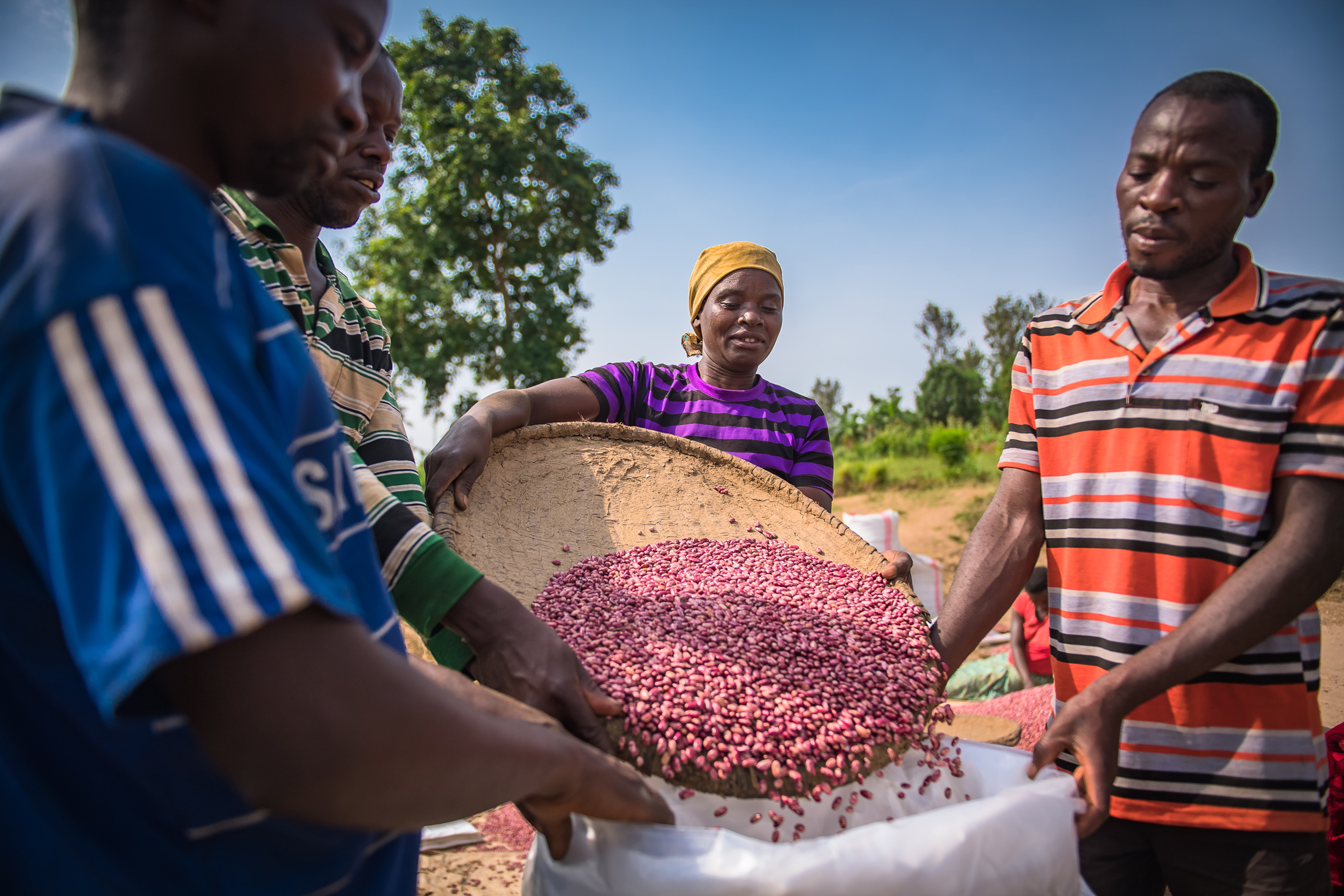Feed the Future Rwanda Hinga Weze Activity
Rwanda
Overview
The Feed the Future Rwanda Hinga Weze activity was a five-year (2017-2022), $32.6 million USAID-funded activity that aimed to sustainably increase smallholder farmers’ income, improve the nutritional status of women of reproductive age (15-49) and children under two, and increase the resilience of Rwanda’s agricultural and food systems.
Impact
- 560,000 households directly benefiting from increased agricultural production and improved nutrition
- 200,000 farmers benefiting from increased yields
- 4,600 hectares of land benefiting from improved soil and water management practices

Over the prior 20 years, Rwanda made remarkable progress and the country’s economy grew steadily at roughly 8% since 2001, according to the country’s National Institute of Statistics. Additionally, the National Strategic Plan for the Transformation of Agriculture in Rwanda Phase III highlighted how the agricultural sector played a central role in Rwanda’s economy, accounting for 39% of gross domestic product (GDP), 80% of employment, and 90% of the country’s food needs.
Despite this impressive growth, significant challenges to agricultural productivity and market participation remained, including constraints on land availability for cultivation, degradation of the country’s soil and natural resource base, lack of access to agricultural inputs and mechanization, and recurring extreme climatic events. The performance of the agricultural sector was closely linked to Rwanda’s overall nutritional profile and undernutrition remained a pervasive problem, further impacting Rwanda’s economy. Rwanda’s 2020 Demographic and Health Survey noted that about 33% of children under five were malnourished. Stunting in children was attributed to food insecurity and poverty, inadequate feeding (poor complementary feeding practices), and inadequate environments.
Approach
Hinga Weze worked through holistic interventions that targeted the interrelated issues of undernutrition, food insecurity, barriers to agricultural productivity, and other challenges. Specifically, the activity focused on the sustainable intensification of Rwandan smallholder farming systems, with emphasis on nutrition-sensitive approaches and social behavior change to the production and consumption of five value chains, including nutritious foods: high-iron beans, Orange-Fleshed Sweet Potato, Irish potato, maize, and horticulture.
The activity supported over 733,000 smallholder farmers to sustainably enhance productivity, increase incomes to purchase nutritious foods, and improve household nutrition outcomes in the following ten target districts: Gatsibo, Kayonza, Bugesera, Ngoma (Eastern Province), Nyabihu, Rutsiro, Ngororero, Nyamasheke, Karongi (Western Province), and Nyamagabe (Southern Province).
- Increased Sustainable Agricultural Productivity: Hinga Weze focused on interventions that supported an integrated systems approach to agricultural productivity and that followed the principles of sustainable land and water use, with particular attention to technologies of relevance to Rwanda, facilitating the resilience of farming systems by improving water management, preventing soil erosion, and maximizing the effectiveness of input use.
- Expanded Farmers’ Access to Markets: To enhance farmers’ competitiveness and expand their access to markets, Hinga Weze increased access to post-harvest equipment and facilities, market information, and credit and financial services.
- Improved Nutritional Outcome of Agriculture Interventions: Hinga Weze focused on strengthening the link between agriculture and nutrition to improve the nutritional status of its communities and families.
Partners
To implement Hinga Weze, Cultivating New Frontiers in Agriculture (CNFA) collaborated with a diverse group of both international and local partner organizations, including the Rwanda Development Organization and Imbaraga Farmers’ Federation. The activity achieved results by promoting household and community-level behavior changes through cost-effective interventions and a systems approach that prioritized collaboration with stakeholders from the government, private and civil society sectors, and the community.
Related Expertise
Customized New Extensionist Learning Kit
Hinga Weze, with stakeholders across Rwanda, launched the customized “New Extensionist Learning Kit” (NELK) to build the capacity of agricultural extension agents. The learning kit contains modules designed for self-directed, face-to-face, or blended learning.
More





